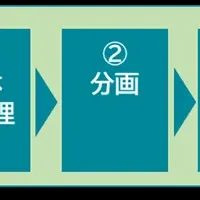
New Insights from Amgen and Kyowa Kirin's Rocatinlimab Phase 3 Study on Atopic Dermatitis
Amgen and Kyowa Kirin Present Rocatinlimab Phase 3 Study Results
In a groundbreaking development, Amgen and Kyowa Kirin recently announced promising results from their ongoing Phase 3 IGNITE study evaluating the effectiveness of Rocatinlimab in treating moderate to severe atopic dermatitis (AD). This collaborative effort not only sheds light on a new treatment option but also marks a significant step forward in addressing a condition that impacts millions globally.
Overview of the Study
The IGNITE study focused on Rocatinlimab, a T-cell rebalancing therapy targeting the OX40 receptor. Conducted over 24 weeks, the study included a randomized, placebo-controlled, double-blind design involving 769 adult participants. The dual goals of the research were to assess both the efficacy and safety of Rocatinlimab compared to placebo.
Key Findings
The study met its co-primary endpoints with significant results. For instance, at the 24-week mark, 42.3% of patients in the higher dose group experienced a ≥75% reduction in their Eczema Area and Severity Index score (EASI-75), indicating a substantial improvement in their condition. This figure represented a noteworthy 29.5% improvement compared to the placebo group (p < 0.001). Meanwhile, the lower dose group recorded a 36.3% achievement rate for EASI-75, which equated to a 23.4% difference versus placebo (p < 0.001).
In terms of the Investigator's Global Assessment for Atopic Dermatitis (vIGA-AD™), which measures clearer skin response, 23.6% of patients in the higher dose cohort achieved a score of 0 (clear) or 1 (almost clear), showcasing a 14.9% difference from placebo (p < 0.001). Similarly, 19.1% of patients in the lower dose group reached this vIGA-AD benchmark, presenting a 10.3% improvement over placebo (p = 0.002).
Another notable metric evaluated was the revised Investigator's Global Assessment (rIGA™), demonstrating that 22.7% of higher dose participants achieved a rIGA score of 0/1 with a ≥2-point reduction from baseline, a 14.4% difference from placebo (p < 0.001). In the lower dose group, 16.3% reached this threshold, reflecting an 8.0% improvement (p = 0.01).
Safety Profile
The safety outcomes indicated that the profile of Rocatinlimab aligned with prior safety observations. Common treatment-emergent adverse events (≥5%) among Rocatinlimab groups included pyrexia, chills, and headaches. Furthermore, gastrointestinal ulceration events were more frequently noted in patients receiving Rocatinlimab, though the overall incidence remained less than 1%.
Statement from the Leaders
Dr. Jay Bradner, Executive Vice President of Research and Development at Amgen, expressed the importance of these findings, stating, "Many patients with moderate to severe atopic dermatitis struggle with chronic, life-disrupting symptoms. Even with currently available therapies, they may fail to reach or maintain treatment goals. We're pleased with ROCKET program results to date, which support the potential of rocatinlimab as a new treatment option."
Meanwhile, Dr. Takeyoshi Yamashita from Kyowa Kirin highlighted future studies, confirming that the ASCEND trial will investigate the long-term effects of Rocatinlimab and its maintenance efficacy beyond the initial 24-week treatment period.
Further Research
The ROCKET program is robust, comprising various trials such as the SHUTTLE and VOYAGER studies, which aim to provide comprehensive data on Rocatinlimab’s safety and efficacy. Notably, the SHUTTLE study demonstrated strong efficacy when combining Rocatinlimab with topical therapies, further emphasizing its potential in treating atopic dermatitis, while the VOYAGER study confirmed that Rocatinlimab does not interfere with vaccination responses.
In conclusion, these findings set the stage for continued exploration and validation of Rocatinlimab as a significant therapeutic option for those suffering from atopic dermatitis, a condition characterized by persistent irritation and discomfort. As Amgen and Kyowa Kirin progress through the ROCKET program, the medical community eagerly anticipates more detailed results in upcoming presentations and publications, promising hope for many patients worldwide.
Topics Health)










【About Using Articles】
You can freely use the title and article content by linking to the page where the article is posted.
※ Images cannot be used.
【About Links】
Links are free to use.